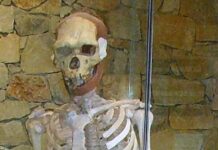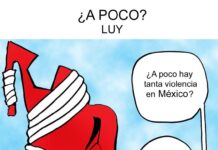“I refuse to live without rebelling against a world which breeds crime and corruption. I refuse to shut my eyes either through passivity or negligence to the wars which greedy men unleash on other men. All wars are a huge business whose perpetrators camouflage their true intentions”
Peter Fieldman
This simple moral quote could refer to the materialistic and selfish world which we have created. Instead of constant publicity about people obsessed by greed, fame and fortune it is comforting to learn of others whose satisfaction comes from a selfless commitment to society. Such a man was Canadian Doctor, Norman Bethune, who stood for justice and freedom. Almost a century has passed since Norman Bethune uttered his feelings about the military conflicts which engulfed the world during the first half of the 20th century and the inequality which caused so much poverty.

Norman Bethune was born in the small Canadian town of Gravenhurst in 1890. He was studying medicine at the outbreak of the First World War when he was sent to England with Canadian forces and volunteered to become a stretcher bearer in France where he was wounded. He returned to Canada to obtain his medical degree and became a leading surgeon in Montreal where he developed new surgical instruments for the treatment of tuberculosis.
His experience in the trenches coupled with his belief in a fairer society altered his outlook on life. Incensed that the poor were dying not from their illnesses but through lack of money for treatment, he became an active campaigner for the provision of a universal health service. After the Russian revolution he was drawn to the ideals of communism and chose to dedicate his life to helping those in need.
A staunch anti-fascist, he returned to Europe in 1936 at the outbreak of the Spanish Civil War to assist the International Brigades. In London and Paris, with funding from the Canadian Committee of Aid for Democracy in Spain, he acquired surgical instruments and a Ford van which he equipped with a refrigerating unit, sterilisers and generator and drove to Madrid. “I have not come to spill blood but to give it,” he announced.
In Madrid local newspapers published his request for donors and more than one thousand people queued up outside his temporary clinic. Benefitting from these private donors his mobile ambulance began to transport blood to the numerous hospitals in the city. But often it was too late. Bethune realised that soldiers were dying through the delay in transfusions rather than from their wounds.
Mobility and speed was the answer and Bethune established one of the world’s first mobile blood transfusion units. His ambulance, operating under the name Servicio Canadiense de Transfusion de Sangre, became a familiar site at the front during the battle for Madrid saving countless lives by treating the wounded on the battlefield. In his novel L’Espoir, Andre Malraux described the humanitarian actions of Doctor Bethune.
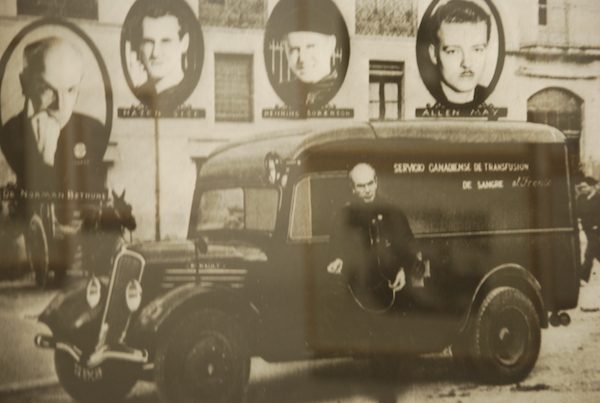
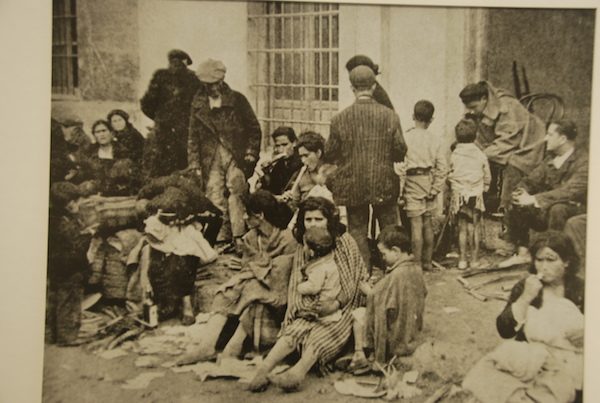
In 1937 he and his team of Canadian volunteers were active in Barcelona and Valencia and after purchasing the Ford ambulance, drove to Malaga to assist refugees fleeing the advancing Nationalist troops. There was only one escape route and the refugees were forced to risk the two hundred kilometre long journey along the coast to Almeria. More than one hundred and fifty thousand men women and children fled the city but there was no protection from the heat, the rocky terrain and the bombing by German and Italian warplanes. It was one of the lesser known atrocities of the Civil War.
Bethune returned to Canada in 1938 but almost immediately left for China to join Mao Tse Tung’s red army when the Japanese invaded. With just one interpreter he became a renowned surgeon, training local medical orderlies and attending to wounded Chinese soldiers as well as Japanese prisoners without distinction. He was credited with introducing modern medicine to China. At one point he was carrying out more than one hundred operations a month. During a straightforward operation he cut himself. The wound did not heal and became infected leading to his untimely death in 1939 in Hebei Province.
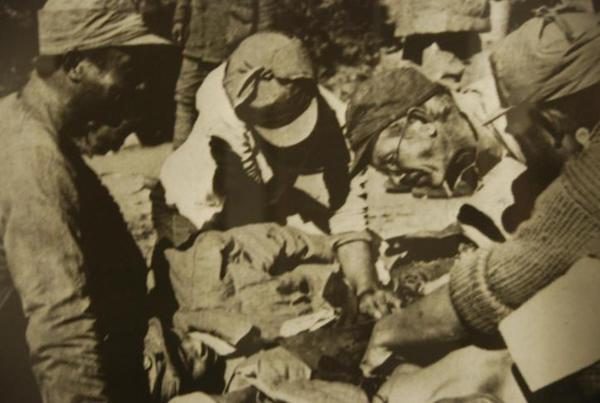
He was buried in China as a national hero receiving a eulogy from Mao Tse Tung who ordered the erection of several statues and memorials in his name which still exist today. Several years later when Canada’s Prime Minister, Pierre Trudeau, returned from an official visit to China, his Government acquired Bethune’s home as a permanent memorial and a statue was erected in Montreal in the square which bears his name.
Each year the Association of International Brigades commemorates the Battle for Madrid fought in the hills by the river Jarama south east of the Spanish capital between 6 and 27th February. This year is the eightieth anniversary and in memory of Norman Bethune’s contribution to the Republican cause, in conjunction with the Cultural Department of Andalucia and the Canada Foundation, the Association has organised a major photographic exhibition at the Conde Duque Cultural Centre with dramatic images of his involvement in the Spanish and Chinese conflicts.
A major part of the exhibition is devoted to a series of rarely seen photographs depicting the plight of the Spanish refugees in southern Spain on the road to Almeria. When we associate these images with those of the present refugee crisis in the Middle East, we are reminded that during the past eighty years we still have not learnt any lessons.
- Photos by courtesy of National Library of Spain, Canadian Library and Archives, the Bethune family and Roderick Stewart
The Exhibition, La Huella Solidaria, runs until 2nd April in:
- Conde Duque Sala Sur
Calle Conde Duque 9-11
28015 Madrid
www.condeduquemadrid.es

